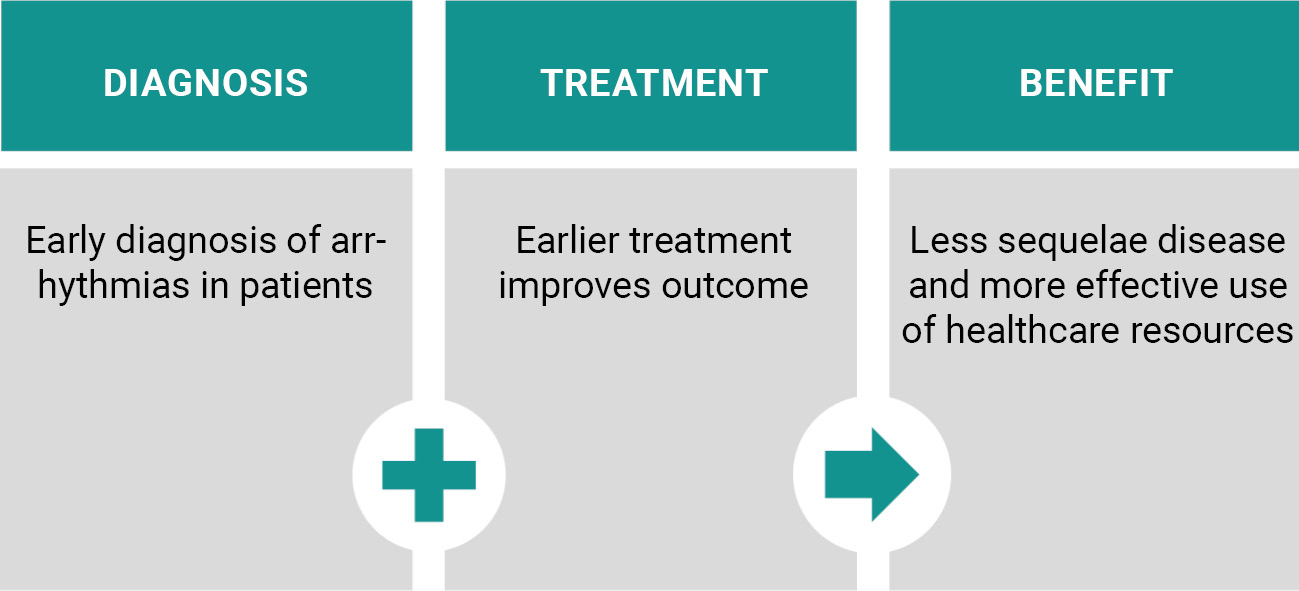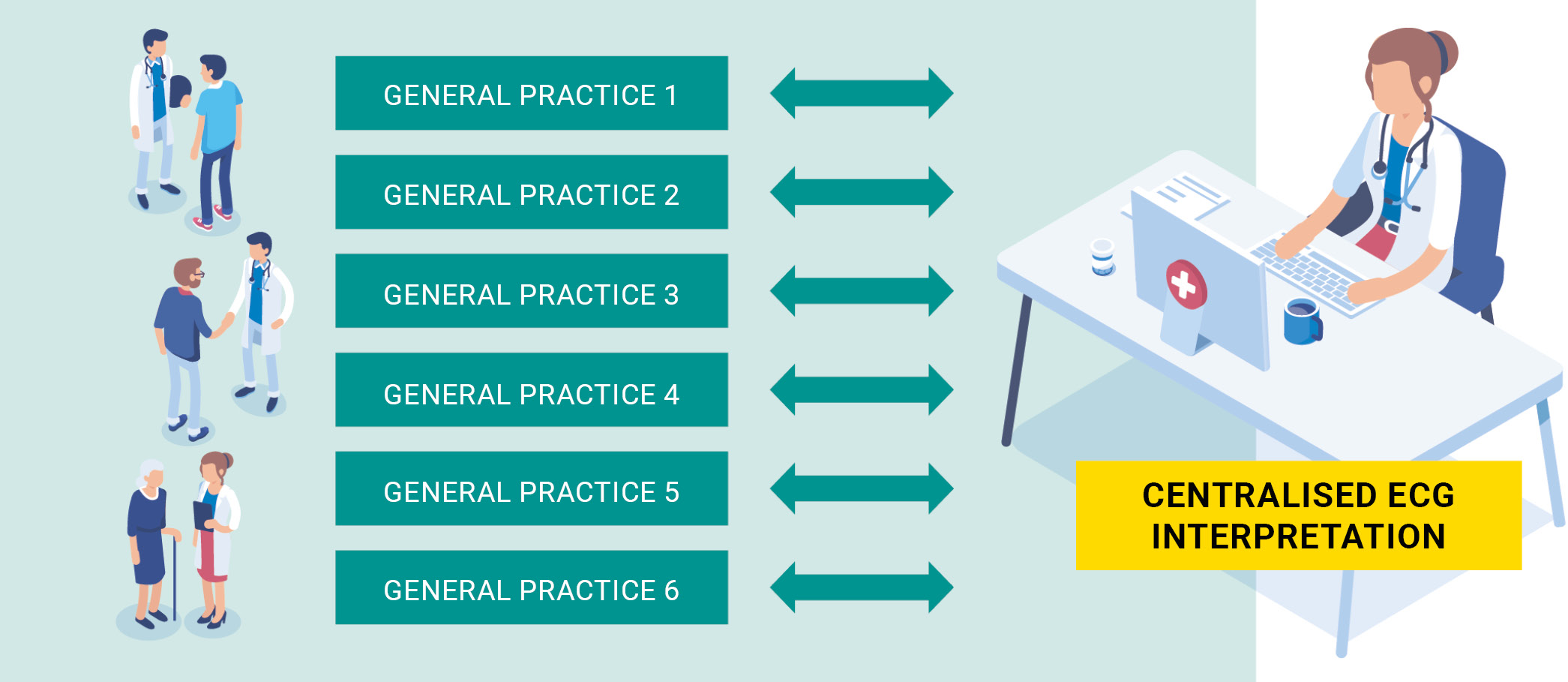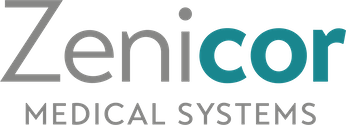Improving care for patients presenting with palpitations
Palpitation pathway
Palpitations are a common reason for a patient visit to primary care provider and a frequent reason for specialist referrals. The current care pathway for palpitation patients often results in several assessments and long waiting times for a specialist consultation, resulting in delayed diagnosis and treatment.
Identifying the cause of symptoms
Assessing patients with palpitations is traditionally done with pulse registration, 12-lead resting ECG or 24-hour Holter ECG. These methods have a low yield as palpitations are often sporadic. Studies indicate that 3-4 times more arrythmias are detected with prolonged intermittent ECG recordings.¹
Streamlining the care pathway
Remote monitoring of cardiac arrhytmias offers a tangible solution to create a more patient centred care pathway for this patient population. A system enabling remote interpretation of ECGs by a specialist empowers the psysicians to assess the patients at the first point of care. The patient centred care pathway benefits physicians, patients and the healthcare system.

Early diagnosis with Zenicor ECG
The Zenicor solution consists of a CE-marked medical device, lead I ECG device and web-based interface for analysing and processing of ECG data. The ECG device transmits data over the mobile network which allows for remote interpretation. The system enables seamless integration between the general practitioner and specialist care, reducing the need for unnecessary patient referrals.

Patients presenting to the GP practice with palpitations will be handed a Zenicor ECG device to take home with them for two weeks to record their ECG 2-4 times a day and when experiencing symptoms. The ECGs are analysed centrally and the result are communicated back to the general practioner shortly after interpretation. Treatment and or/referal for further assessment may be done by the psysician in accordance with NHS-guidelines.
Symptom-rhythm correlation
he likelihood of discovering arrhythmias increases significantlly compared to conventional methods when the length of the investigation can be extended, usually for several weeks to get a symptom-rhythm correlation. The simplicity and convenience for the patient means that the investigation can be performed during an extended time period which is why Zenicor-ECG is a uniquely effective method.


